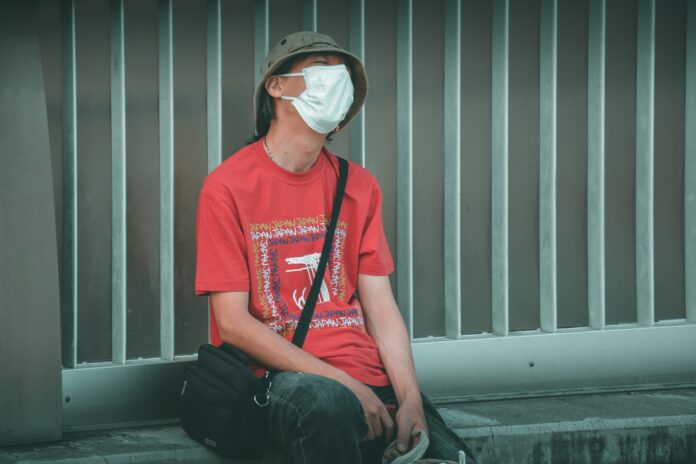Six in ten people with COVID-19 still have at least one symptom a year later, a new study being presented at this year’s European Congress of Clinical Microbiology & Infectious Diseases (ECCMID) in Lisbon, Portugal (23-26 April) has found.
The researchers in Luxembourg also found that COVID-19 symptoms that don’t clear up after 15 weeks are likely to last at least a year.
An estimated 25-40% of people with COVID-19 develop long Covid – persisting symptoms that can affect multiple organs and include mental health problems.
Most of the data to date, however, is based on patients who were hospitalised with COVID-19 and it isn’t clear how it applies to COVID-19 cases more generally.
To find out more, Aurelie Fischer and colleagues at the Luxembourg Institute of Health, Strassen, Luxembourg, surveyed almost 300 people a year after they were diagnosed with COVID-19.
The 289 participants (50.2% women) had an average age of 40.2 years and were divided in three groups, based on the severity of their initial infection: asymptomatic, mild and moderate/severe COVID-19.
They were asked to fill in a detailed questionnaire about whether they were experiencing 64 common long Covid-related symptoms.
They also filled a questionnaire on sleep quality and one that looked at the effect of respiratory symptoms, such as breathlessness, on quality of life.
Six in ten (59.5%) participants had at least one long Covid symptom a year after their initial infection, with fatigue, shortness of breath and irritability the most common.
A third (34.3%) were experiencing fatigue a year on, 12.9% said respiratory symptoms were affecting their quality of life and more than half (54.2%) had ongoing sleep problems.
Participants who’d had moderate/severe COVID-19 were twice as likely to still have at least one symptom a year on than those whose initial infection was asymptomatic. Having had moderate/severe COVID-19 was also associated with more sleep problems after a year than being asymptomatic (63.8% vs. 38.6%).
Ms Fischer adds: “We observed a gradient between COVID-19 severity at inclusion and frequency of long Covid at one year.
“Participants with a mild form of the acute illness were more likely than those who’d been asymptomatic to have at least one symptom at one year, and to have sleep problems, but to a lesser extent than those with a moderate or severe acute illness.”
One in seven participants (14.2%) said they could not envisage coping with their symptoms long-term.
Persistence of symptoms was not associated with pandemic wave.
The participants’ health had been tracked since their Covid diagnosis, as part of Predi-COVID, a large-scale study into risk factors and biomarkers associated with COVID-19 severity and long-term health consequences of the disease in Luxembourg.
Data from Predi-COVID also revealed that COVID-19 symptoms that didn’t resolve after 15 weeks were likely still to be present a year after initial infection.
The analysis also showed revealed that some groups of symptoms tend to occur together, suggesting that there are multiple different types of long Covid.
Ms Fischer says: “Our study offers a detailed description of symptoms persisting one year after Covid-19, according to the initial disease severity.
“It shows that long Covid can still have a large impact on quality of life, even a year after the acute infection. In general, the more severe the acute illness is, the more likely someone is to have ongoing symptoms; however, those with an asymptomatic or mild initial infection may also experience a deterioration in their quality of life.
“We also highlighted that long Covid likely consists of multiple sub-categories, distinguished by particular combinations of symptoms.
“Finally, this work will help raise awareness of the needs of people with long Covid and contribute to the development of health strategies to help them.”
Story Credit:
Photo Credit: Jusdevoyage/Unsplash



































